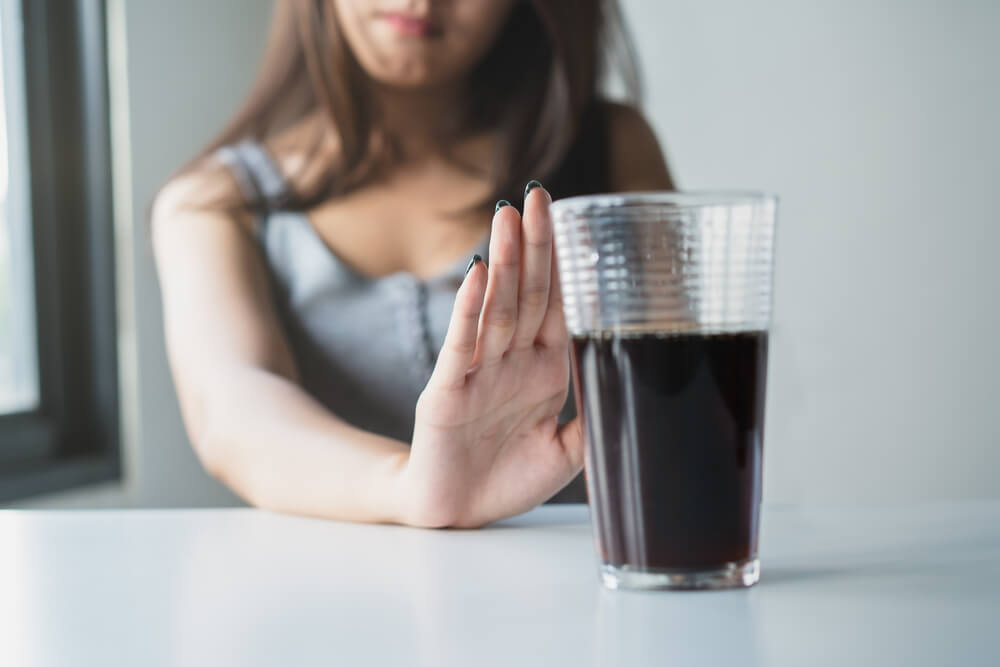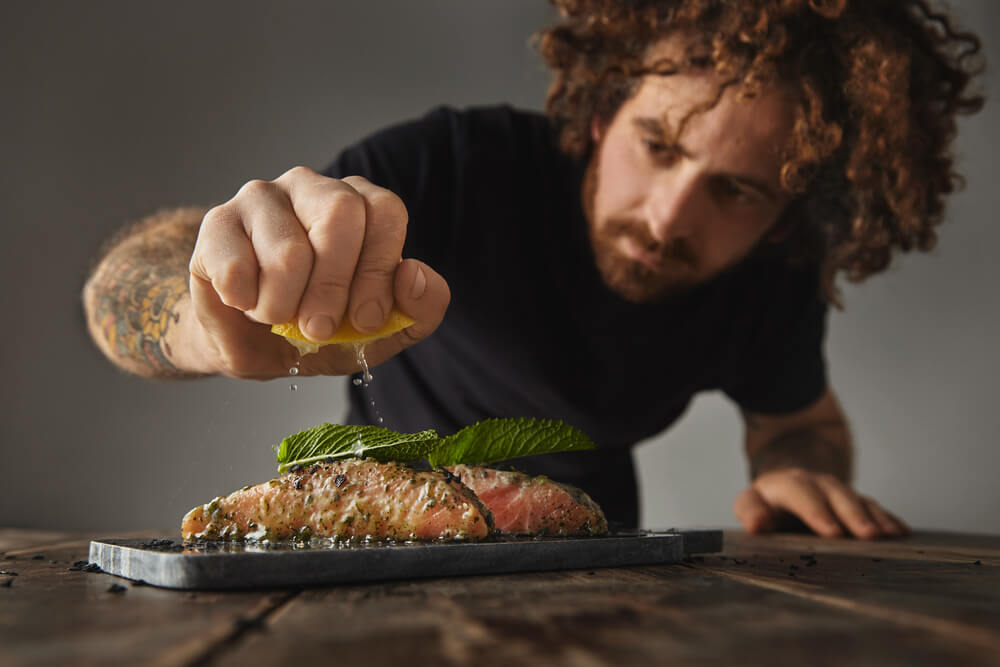The colon plays a key role in the digestive system, helping process and deliver the necessary nutrients to every organ, tissue, cell, etc., to keep the body healthy.
That being said, maintaining a healthy diet after colon surgery is essential to recover faster from treatment and to ensure that the malignancy stays away.
To ensure that you eat well and steer clear of developing colon cancer, here are a few colon cancer foods to avoid. along with a comprehensive list of foods that you should prioritize if you have a family history of the disease or if you have received the diagnosis.
Colon Cancer Diet
Patients who have cancer will need more nutrients, especially more protein and overall calories. Additionally, enriching diet meals with nutrient-dense foods can help promote health, keeping their bodies and immune system as healthy as they can.
A colon cancer recovery diet should be nutrient-dense, as cancer treatments, such as chemotherapy, can be harsh on the body, requiring patients to increase their protein and overall caloric needs to combat the negative effects of the treatment, to rebuild strength, and prevent additional infections.
Generally speaking, experts have mentioned that colon cancer patients may need to eat a diet that is:
- Calorie-dense,
- Protein- and fiber-rich
- Loaded with smaller but more frequent meals to fight nausea
These are only general guidelines to help patients remain as healthy as possible after developing colon cancer.
Still, those with a family history of developing the malignancy may want to look into the foods that fight colon cancer.
For them, here’s a shortlist of the best food choices.
Foods That Fight Colon Cancer

To keep your colon healthy, you need a good amount of vitamin D, flavonoids, calcium, and omega 3-fatty acids in your diet.
As hinted above, dietary fiber is also crucial, as it fights the buildup of bacteria and promotes regular bowel movements.
As such, here are some of the best foods you can eat to keep colon cancer away:
- Fish: Rich in omega-3 fatty acids, eating fish can help fight inflammation. Some types, like smoked salmon, sardines, and tuna, are high in calcium and vitamin D, making them even better choices.
- White meat: We’ve already mentioned that protein is essential for the body for several reasons. However, not every protein source is created equal. For most of us, meat would be a primary protein source. But even then, you should focus more on chicken and turkey. Red meat sources, unfortunately, are among the cancer foods you should avoid, as they may increase the risk of developing the malignancy by 28% when consumed in large quantities.
- Fruits: These foods are rich in antioxidants, phytochemicals, and antioxidants that fight digestive problems. Foods that fight colon cancer from this category include oranges, bananas, pears, blueberries, blackberries, and raspberries.
- Nuts: having a minimum of two one-ounce servings of these foods is packed with healthy fiber, flavonoids, and fatty acids, which can decrease the chances of developing colon cancer. Have two small servings of macadamia nuts, cashews, almonds, pecans, pistachios, or hazelnuts daily to ensure you’re doing everything you can to avoid the malignancy.
- Legumes and Beans: Peas, soybeans, black beans, lentils, kidney beans, and pinto beans are all great vitamin E, B, fiber, and protein sources. They can help protect your colon, along with controlling blood sugar and cholesterol levels.
- Non-starchy Vegetables: Cucumbers, broccoli, cauliflower, okra, spinach, carrots, celery, kale, and lettuce are also great foods that fight cancer. Non-starchy vegetables are great for lowering type 2 diabetes risk, which may also increase the chances of developing colon cancer. Eat at least three to five servings of these vegetables daily.
- Whole grains: Packed with fiber, they can also help you lower cancer risks. Oatmeal, quinoa, barley, and brown rice are your healthiest options.
Colon Cancer Foods to Avoid

No matter if a patient has been diagnosed with a colon malignancy or not, these foods should be avoided when people are looking for ways to prevent or fight colon cancer.
- High-sugar foods: Avoiding these foods as a part of a colon cancer recovery diet is crucial, but also essential for healthy people as well. These foods may taste good but provide little to no nutrients. They also tend to be lease satiating and calorie-dense, potentially leading to obesity which is a known colon cancer risk factor.
- Saturated fat: Diet after colon cancer surgery should also exclude foods high in these fats. High-fat dairy, lamb, pork, and processed snacks are never the best option. Instead, focus on healthier facts from sources such as seeds, fish, and nuts.
- Caffeine: known to aggravate diarrhea and nausea, caffeine can lead to heartburn and may worsen insomnia, which is often a side effect of chemo treatments. As such, it should be avoided in your diet after colon surgery.
- Fried foods: When talking about colon cancer foods to avoid, fired foods should be high on your list. Apart from aggravating cancer symptoms, they can also worsen chemotherapy side effects. They are difficult to digest and often packed with saturated fats and extra, empty calories.
- Alcohol: Alcohol is known to increase the risk of developing various cancers. However, this doesn’t mean that you totally need to exclude it from your diet, but you need to be very sparse with alcohol. It can mess up your colon cancer recovery diet, and it may also interfere with your medication, leading to unwanted complications.
- Carbonated drinks: As these beverages can worsen gas and nausea symptoms, they should be avoided. Also, the added sugar may contribute to weight gain, which is a known cancer risk factor.
- Processed meats: The WHO classified processed and cured meats as carcinogenic back in 2015. Cold cuts, bacon, and other processed sources may contain chemicals that may damage the colon. For those already suffering from the malignancy, these foods may aggravate symptoms, and those who are at a high risk of developing the condition are only making matters worse if they aren’t limiting their intake.
Colon Cancer Diet for Recovery
As mentioned before, a good post-treatment diet plan should focus on healthy foods to help prevent cancer from coming back and to avoid other problems such as diabetes, heart disease, high blood pressure, and so on.
Diet after colon surgery should still consist of vegetables, poultry, fish, nuts, fruits, and whole grains.
Generally, the post-treatment diet plan will be a bit different for every individual.
Patients who have been diagnosed with malignancy should work closely together with their doctors to take the best course of action both in terms of treatment and diet.
Colon cancer survivors need to make conscious food choices. Living with cancer is demanding, but following a healthy diet shouldn’t be. Fortunately, there are a lot of delicious recipes out there that incorporate the foods we’ve highlighted above, enabling you to still enjoy every meal.
If you are looking for help regarding colon cancer and diet, feel free to reach out to us.


